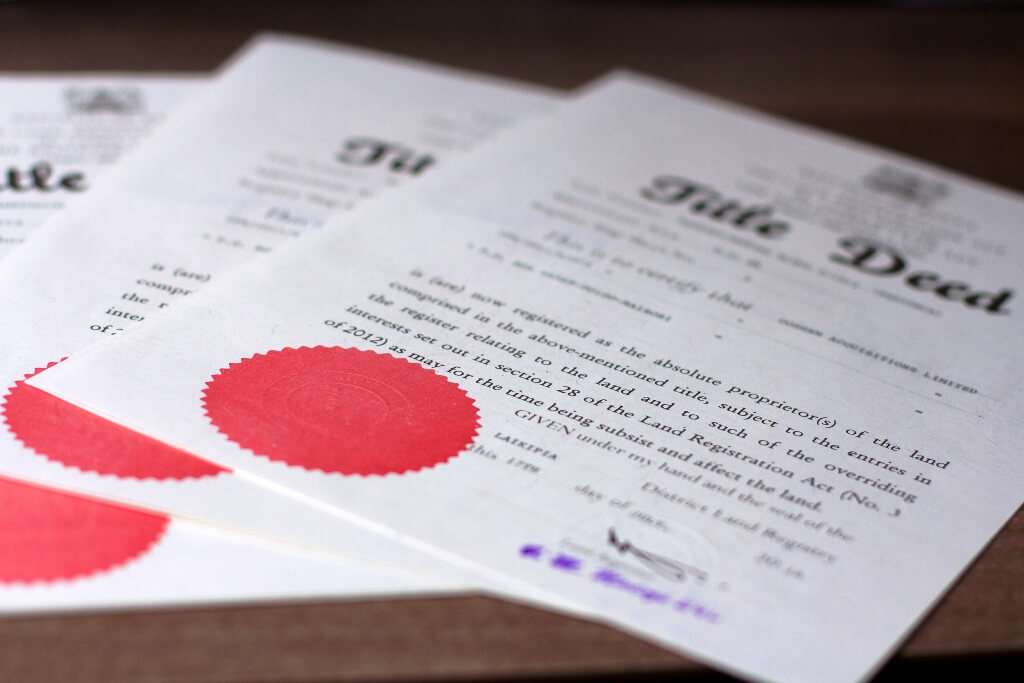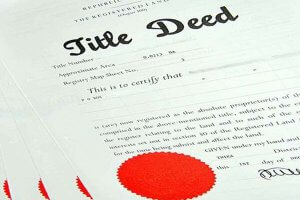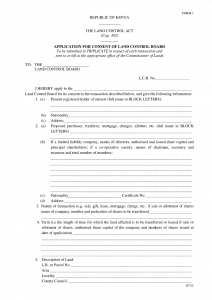Essential Land Documents Required for Purchasing Land in Kenya: A Comprehensive Guide

Introduction to Land Documents
Purchasing land in Kenya can be a rewarding investment, offering opportunities for development and long-term appreciation. However, the process of buying land involves several legal and administrative steps to ensure that the transaction is legitimate and secure. One of the most critical aspects of this process is obtaining and verifying the necessary land documents. These documents serve as proof of ownership, outline the terms of the transaction, and protect the buyer from potential legal disputes. This comprehensive guide explores the essential land documents required when purchasing land in Kenya, providing valuable insights to help you navigate the process smoothly.
Importance of Land Documents
Land documents are crucial for several reasons. They provide legal proof of ownership, ensure that the land is free from encumbrances, and confirm that the seller has the right to transfer the property. Proper documentation also protects the buyer from future legal disputes and helps in securing financing from banks and other financial institutions. Understanding and obtaining the correct land documents is therefore vital for any land transaction in Kenya.
 Title Deed
Title Deed
The title deed is the most important document in any land transaction. It serves as proof of ownership and indicates that the holder has legal rights to the property. In Kenya, the title deed can be freehold or leasehold. A freehold title gives the owner absolute ownership of the land, while a leasehold title grants ownership for a specified period, usually 99 years, after which it can be renewed. The title deed must be verified to ensure that it is genuine and that the seller has the legal right to transfer the land.
Freehold Title Deed
A freehold title deed provides the owner with absolute ownership of the land. This means the owner has full control over the property and can use it as they see fit, subject to local zoning laws and regulations. Freehold land is often preferred by buyers because it offers long-term security and greater flexibility in terms of land use and development.
Leasehold Title Deed
A leasehold title deed grants the owner rights to the land for a specific period, typically 99 years. After the lease period expires, the lease can be renewed. Leasehold properties are common in urban areas where the government retains ownership of the land but leases it to individuals or organizations. Buyers must be aware of the remaining lease period and any conditions attached to the lease.
Land Search Certificate
Before purchasing land, conducting a land search at the Ministry of Lands is essential. The land search certificate provides information about the current ownership, size, and any encumbrances or legal issues associated with the property. This document helps verify the authenticity of the title deed and ensures that the land is not involved in any disputes or claims. Conducting a thorough land search is a crucial step in the due diligence process.
Sale Agreement
The sale agreement is a legally binding contract between the buyer and the seller. It outlines the terms & conditions of the sale, including the purchase price, payment schedule, and any contingencies. The sale agreement should be drafted by a qualified lawyer to ensure that it complies with Kenyan law and protects the interests of both parties. Both the buyer and seller must sign the agreement, and it should be witnessed by a third party.
Transfer of Title
The transfer of title is the process of changing the ownership of the land from the seller to the buyer. This involves submitting the necessary documents to the Ministry of Lands, including the signed sale agreement, the original title deed, and a duly filled transfer form. The transfer must be registered with the relevant land registry, and the buyer will receive a new title deed in their name once the process is complete. The transfer of title is a critical step that legally formalizes the change in ownership.
 Land Control Board Consent
Land Control Board Consent
For agricultural land transactions, obtaining consent from the Land Control Board (LCB) is mandatory. The LCB ensures that the sale complies with local land use policies and regulations. Both the buyer and seller must appear before the board to seek approval for the transaction. The LCB consent is an important document that must be obtained before the transfer of title can be registered. Without this consent, the sale of agricultural land is considered null and void.
Clearance Certificates
Several clearance certificates may be required during the land purchase process. These certificates confirm that the property is free from outstanding taxes, rates, and other liabilities. Common clearance certificates include:
Land Rates Clearance Certificate
Issued by the local county government, this certificate confirms that all land rates have been paid up to date. Land rates are annual taxes levied on property owners, and any outstanding rates must be cleared before the transfer of ownership can proceed.
Land Rent Clearance Certificate
For leasehold properties, the land rent clearance certificate verifies that all rent due to the government has been paid. Leasehold properties require annual rent payments to the government, and any arrears must be settled before the transfer of title.
Consent to Transfer Certificate
In some cases, a consent to transfer certificate from the Commissioner of Lands is required. This certificate is necessary for leasehold properties and ensures that the government has approved the transfer of ownership.
Mutation Form
A mutation form is used when subdividing or amalgamating land parcels. This document is essential if the buyer intends to divide the land into smaller plots or combine multiple plots into a single parcel. The mutation form must be approved by the relevant authorities, and the changes must be reflected in the land registry.

land documents
Survey Map
A survey map, also known as a cadastral map, provides detailed information about the boundaries and dimensions of the land. This map is essential for verifying the exact location and size of the property. It is typically prepared by a licensed surveyor and approved by the Director of Surveys. The survey map helps prevent boundary disputes and ensures that the buyer is fully aware of the property’s dimensions.
Identification Documents
Both the buyer and seller must provide identification documents as part of the land transaction process. These documents include:
National Identification Card (ID)
A copy of the national identification card is required for both parties. The ID card serves as proof of identity and citizenship.
Passport-Size Photographs
Passport-size photographs of both the buyer and seller are typically required for record-keeping and documentation purposes.
KRA PIN Certificate
The Kenya Revenue Authority (KRA) Personal Identification Number (PIN) certificate is required for tax purposes. Both the buyer and seller must provide their KRA PIN certificates during the transaction.
Additional Considerations
Professional Assistance
Engaging professionals such as lawyers, surveyors, and real estate agents can help ensure a smooth and legally compliant transaction. These experts can provide valuable guidance and assistance in obtaining and verifying the necessary land documents.
Due Diligence
Conducting thorough due diligence is crucial when purchasing land. This involves verifying the authenticity of all documents, conducting land searches, and ensuring that the property is free from encumbrances and legal disputes.
Government Regulations
Being aware of and complying with government regulations is essential. This includes obtaining the necessary permits and approvals, adhering to zoning laws, and ensuring that the transaction complies with local land use policies.
Environmental Considerations
Assessing the environmental condition of the land is also important. This includes checking for any environmental hazards, ensuring that the land is suitable for the intended use, and complying with environmental regulations.
Conclusion
Purchasing land in Kenya involves a detailed and meticulous process that requires obtaining and verifying several essential land documents. These documents provide legal proof of ownership, ensure that the transaction is legitimate, and protect the buyer from potential legal disputes. Key documents include the title deed, land search certificate, sale agreement, transfer of title, and various clearance certificates. Engaging professional assistance and conducting thorough due diligence are crucial steps in ensuring a smooth and secure land transaction. By understanding and obtaining the necessary land documents, buyers can confidently invest in land in Kenya, securing their property rights and paving the way for successful development.



